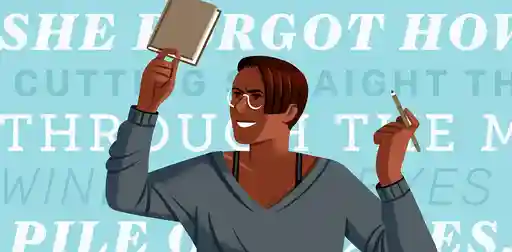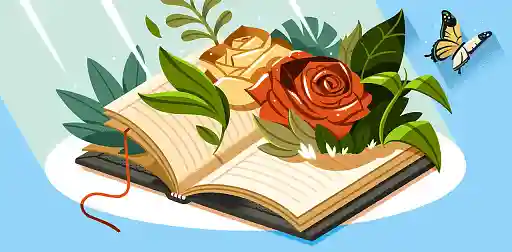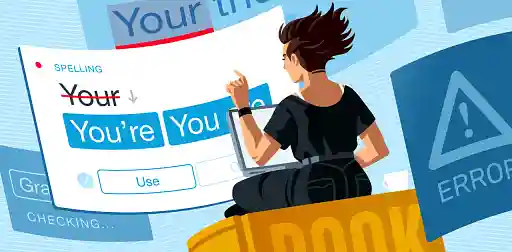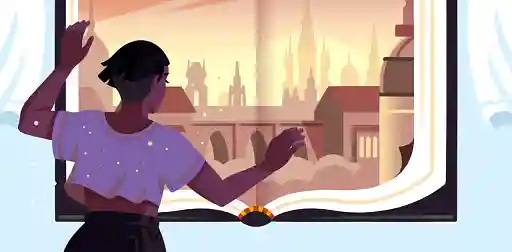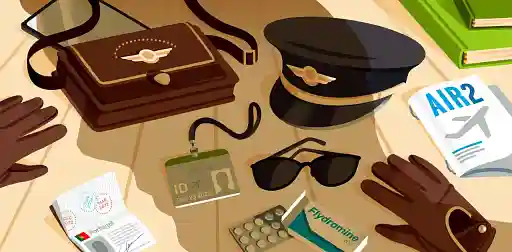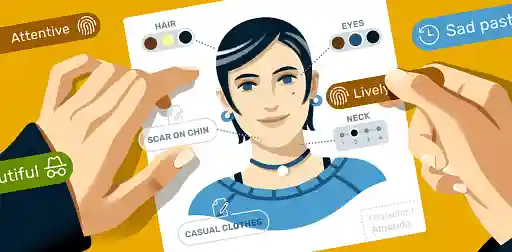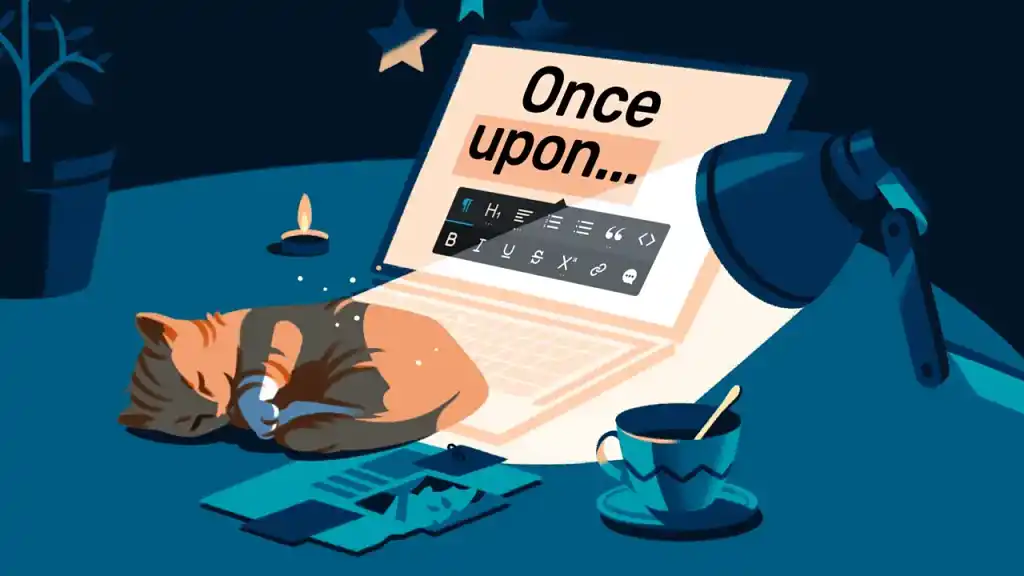Posted on Jun 30, 2025
50+ Pun Examples That’ll Crack You Up
Dario Villirilli
Editor-in-Chief of the Reedsy blog, Dario is a graduate of Mälardalen University. As a freelance writer, he has written for many esteemed outlets aimed at writers. A traveler at heart, he can be found roaming the world and working from his laptop.
View profile →A pun is a clever form of wordplay that plays with multiple meanings or similar word sounds to create comedic effect. They are one of the quirkiest forms of humor in the English language — the kind that makes you laugh and cringe at the same time.
For example:
"The tallest building in town is the library 一 it has thousands of stories."
At first glance, this sentence might leave you puzzled. Then it clicks: "stories" refers to both building floors and narratives. That’s the classic pun “aha” moment.
There are several distinct types of wordplay that fall under the pun umbrella (or punbrella? Too much?). The three most common ones are homophonic, homographic, and compound puns.
Some have found their way into great works of literature, while others are just classic dad jokes — let’s explore all of them with a few fun examples.
Q: What's the best piece of writing advice for an author who wants to improve their craft?
Suggested answer
Join critique groups! These were invaluable to me when it I started writing and even taught me how to edit! Reading books will become dated with old advice, so stay up to date with blogs, trends, audiences, and read, read, read!
Stephanie is available to hire on Reedsy ⏺
Practice and read!
In the same way that you need to practice a musical instrument to get better, you need to do the same with writing too. Very few writers will publish the first book they ever write!
The other thing that will help you to improve your writing craft is reading. Read the books that are selling well in your genre right now, not just the bestsellers from a decade ago. Study them. Look at the reviews for these books and listen to what readers are saying.
There are loads of brilliant books that will help you to write an effective novel as well (Into the Woods by John Yorke, The Science of Storytelling by Will Storr, Story Genius by Lisa Cron and Save the Cat Writes a Novel by Jessica Brody are a few of my favourites). Even if you don't agree with everything they say (I don't necessarily agree with every piece of advice in the above!) it's so helpful to see a range of different perspectives. You'll also quickly be able to see the patterns and advice from these books in the bestsellers you read. There are also loads of podcasts, blog posts, YouTube videos and audiobooks out there too, as well as Reedsy's own masterclasses!
Siân is available to hire on Reedsy ⏺
Homophonic puns
Homophonic puns use words that sound alike but have different meanings, often with different spellings. These ones work best when said out loud.
Here are a few examples:
- "I'm on a seafood diet. I see food, and I eat it."
- "Be kind to dentists. They have fillings too, you know."
- "How do you organize a space party? You planet!"
- "Need an ark? I Noah guy."
- "I don’t enjoy computer jokes. Not one bit."
Homographic puns
Homographic puns use words that are spelled identically but have different meanings and (occasionally) different pronunciations. These ones work best in written form.
Examples:
- "Why don't scientists trust atoms? Because they make up everything!"
- "I used to be addicted to soap, but I'm clean now."
- "I wondered why the baseball kept getting bigger... then it hit me."
- "I’m inclined to be laid back."
- "I used to work at a calendar factory, but I got fired for taking a couple of days off."
Compound puns
As you might expect, compound puns cram multiple puns into one. They usually come in two parts: the first half gets the joke started, while the second delivers the pun-chline (I'm sorry, really).
“Did you hear about the lumberjack who couldn't hack it? They gave him the axe.”
- Pun 1: “couldn’t hack it” = chopping/wasn’t good enough;
- Pun 2: “gave him the axe” = literal axe/got fired.
"I used to be a baker, but I couldn't make enough dough — so I kneaded a change."
- Pun 1: “make enough dough” = money/literal dough;
- Pun 2: “kneaded a change” = needed/kneaded (bread).
"The scarecrow won an award because he was outstanding in his field — but honestly, it was just a corny achievement."
- Pun 1: “outstanding in his field” = excellent/literally standing in a field;
- Pun 2: “corny achievement” = cheesy/made of corn.
Q: What are the most common craft mistakes new authors make?
Suggested answer
One of the biggest mistakes I see from new authors is that they finish writing their manuscript and then they think they are done and ready for an editor to go through and review.
Writers need to be their own editors first. Because there are so many potential new authors every day, it's imperative that writers go back and edit their work thoroughly. That means reading, and rereading what they've written to understand how their characters develop through their novel, or how the topics that they brought up in chapter two are refined and built upon in chapter nine. Through that reading process, writers should be editing their work as they find pieces that aren't strong enough or need to be altered to make a better overall manuscript.
Matt is available to hire on Reedsy ⏺
The most common writing mistake I see from first-time authors is cramming too much into the first chapter. Your first chapter is a meet and greet, where you establish credibility, likability, and optimism that the book is worth the reader's time. Hook the reader, show your personality, but don't dump all your knowledge on them at the beginning of the book. Take them on an interesting, helpful journey,
Mike is available to hire on Reedsy ⏺
That’s all pun and games (...), but can puns serve a deeper purpose? Let’s take a look at how some literary heavyweights have used them to add wit, irony, and layered meaning to their work.
🎵
Tell us about your book, and we'll give you a writing playlist
It'll only take a minute!
Literary puns
Many authors have long used puns not just for humor, but as clever literary devices. Because the joke’s payoff depends on a reader’s acumen, puns create an even more interactive reading experience, rewarding attentive audiences with an extra beat of insight.
Shakespeare himself was a pun lover — his work is chock-full of them! For example:
In Richard III, the scheming duke begins his famous soliloquy with:
"Now is the winter of our discontent / Made glorious summer by this sun of York,"
Richard flips sun into son to boast that he himself — a member of the House of York — will turn national gloom into triumph, all while hinting at the heat of his ambition.
In Romeo and Juliet, Romeo says:
"Give me a torch; I am not for this ambling. / Being but heavy I will bear the light."
In this context, "heavy" refers to both Romeo's physical sluggishness and his emotional burden. “Light" also works on two levels — the literal light from the torch, and the figurative lightness of the mood. This compound pun conveys both Romeo’s current feelings and his dramatic personality. A masterful stroke of character development.
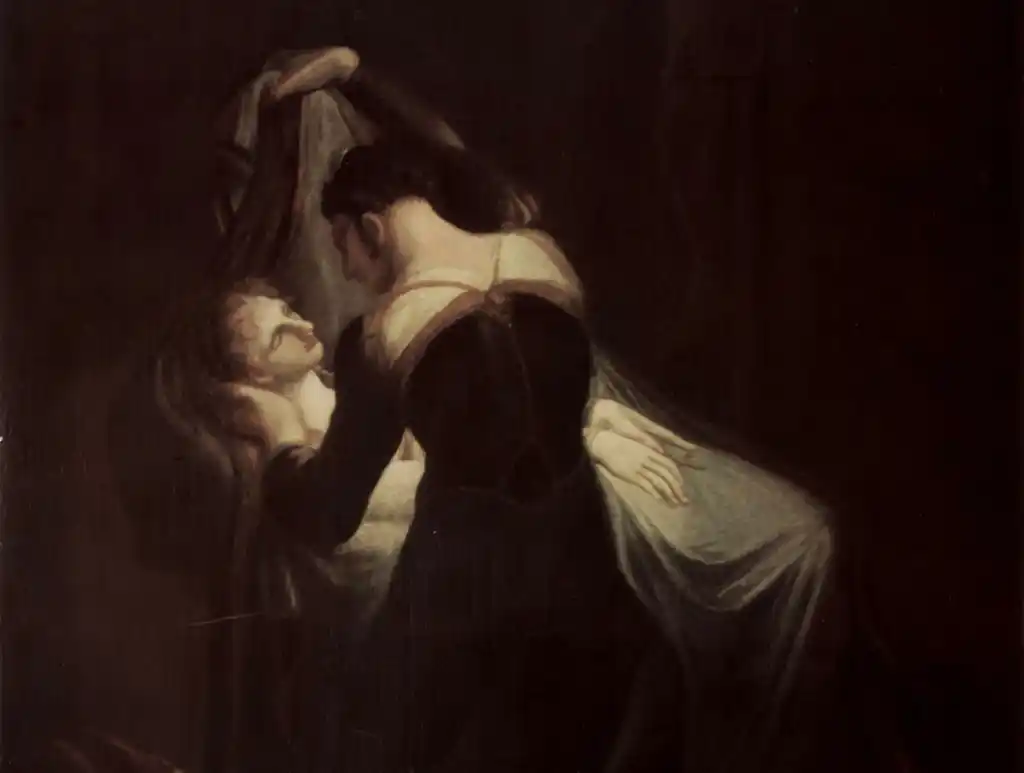
But the Bard wasn’t the only writer to make use of puns.
In Oscar Wilde’s The Importance of Being Earnest, the entire title acts as an extended pun. "Ernest" (the name) and "earnest" (sincere) create the play's central joke — Jack becomes both earnest and literally changes name to Ernest, highlighting Victorian hypocrisy about appearances versus substance.
In Lewis Carroll's Alice's Adventures in Wonderland, after falling into the pool of tears, the Mouse declares "Mine is a long and a sad tale!" and Alice responds "It is a long tail, certainly". The homophone confusion here between "tale" and "tail" is characteristic of the famous linguistic chaos that Carroll's fantasy world is known for.
Q: What essential physical tools or items should writers always have on hand to help with the writing process?
Suggested answer
As an editor and a writer, the physical items I’ve carried with me have changed over the years. Back when I was a 90s teen, I always had a small notebook and pen in my car, purse, or backpack to jot down lines. I also almost always carried a physical book with me—what I was reading in school or for fun at home. Whether it was Great Expectations or The Mirror of Her Dreams, a book on the go filled the void and loneliness of the pauses in my teen life. The book I carried with me also gave me joy and energized me to do my own writing later when I was at home alone, listening to Spin Doctors or Jewel on my clunky CD-tape player.
Nowadays, a smartphone can do a lot for you and me if we let it. The Notes app on iPhones or other writing apps on Androids are great for taking down any poetic lines or other plot aha moments you might have while out with friends or coworkers or running around town getting errands done. As a mom, I often have to wait for my kids to get out of school or classes, so I read a book I’ve downloaded or an article on Substack on my phone to pass the time. (I also just scroll endlessly sometimes. Both things are totally fine!) The same can be done if you’re working nine-to-five and biding your time for a meeting to start.
If inspiration strikes, jot down what you’re thinking to get it out of your head before the bell rings or the meeting starts and life revs up again, the precious idea lost to cleaning out lunchboxes or putting out fires at your job.
If you’re having trouble using your phone as a writer’s tool, delete all your social media apps for a week, and see if it goes better. Do you find yourself writing more and scrolling less? Did you already try that and it not work? Then try to follow more writers on social media for inspiration. Even seeing writers’ day-to-day lives can be inspiring. What did they do yesterday? What shoes did they just buy? Sometimes even little things can motivate you to be in writer-mode.
Also, snacks. Never forget the snacks.
Sandra is available to hire on Reedsy ⏺
I'm a huge proponent of staying hydrated, so I will always recommend water. It's a great tool to give your brain space to think, too. Stuck? Take a sip of water. Finished a difficult line? Take a sip of water. Feeling achy after sitting too long? Take a sip of water.
Samantha is available to hire on Reedsy ⏺
A pocket notebook and pen or pencil. You never know when an idea will come around, or you suddenly figure out a solution to a writing problem. I keep one on me all the time, even if I'm sitting at my computer, because sometimes in the time it takes to decide what app/document to open, the thought will just vanish. It also gives me a chance to think visually, which is how I often work through things: mind-maps, doodles, sketches, and other ways of expressing myself that are not always easy to pull off with a keyboard.
And they're handy for impromptu to-do or shopping lists to boot!
Marisa is available to hire on Reedsy ⏺
Your smartphone! The quickest way to make sure you don't forget an idea is to record a voice note – save yourself the scramble for a pen and paper. Snapshots of places, scenes, details, and skies that inspire you are great for reference too.
Mairi is available to hire on Reedsy ⏺
A notepad or a phone as a way of taking verbal or written notes for ideas as they arise.
Melody is available to hire on Reedsy ⏺
I'm a sucker for a good pocket notebook. You never know when inspiration will strike, and while phone are great (and another note-taking device that works wonders) I've always found that physically writing something down helps the ideas flow more.
Sean is available to hire on Reedsy ⏺
Pen and paper if you're old-school.
Laptop (or in a pinch, smartphone) if you're new-school.
Coffee if you drink coffee; tea if you drink tea.
And when the words just aren't coming, access to whiskey and rum. 😉
Brett is available to hire on Reedsy ⏺
Think of a pun as literature’s Swiss-army knife: compact, mischievous, and subtly subversive — it lets writers slip in extra layers of meaning while keeping readers happily on their toes.
Simple puns
If you’ve made it this far, you’ve earned a little bonus. Here are a few more puns that might just make you laugh out loud (or die inside). If you want to mix fun with learning, try to identify which category each of these puns belongs to.
- "A cross-eyed teacher couldn't control his pupils."
- "I'm reading a horror story in Braille. Something bad is about to happen... I can feel it."
- "The past, present, and future walked into a bar. It was tense."
- "I don't trust stairs. They're always up to something."
- "Did you hear about the mathematician who's afraid of negative numbers? He'll stop at nothing to avoid them."
- "I used to play piano by ear, but now I use my hands."
- "I relish the fact that you mustard the strength to ketchup to me."
- "What did the triangle say to the circle? You’re so pointless."
- "It’s not that the guy didn’t know how to juggle… he just didn’t have the balls to do it."
- "I’m glad I know sign language. It’s become quite handy."
- "Why is it so wet in England? Because many kings and queens have reigned there."
- "The wedding was so emotional that even the cake was in tiers."
- "What do you call cheese that isn't yours? Nacho cheese!"
- "The shovel was a ground-breaking invention."
- "What did one eye say to the other? Just between you and me, something smells."
- "I stayed up all night wondering where the sun went. Then it dawned on me."
- "The best way to communicate with fish is to drop them a line."
- "The graveyard is so crowded, people are dying to get in!"
- "I can’t stand Russian dolls. They’re so full of themselves."
- "What did one wall say to the other wall? I'll meet you at the corner!"
Still itching for more? Check out this pun collection by Will Styler and Will Livingston’s book No Pun Intended, both of which supplied many of the puns on this post.
Puns are more than just simple jokes. They’re also a reminder of the little linguistic joys that emerge from written (or spoken) word. Maybe you’ll never use one, or maybe you’ll whip one out on a date (good luck with that) or at a dinner with friends.
But you might also consider weaving them into your writing to add a touch of wit and make your story more engaging. (Pull it off and even William will shake a spear of approval your way.)

